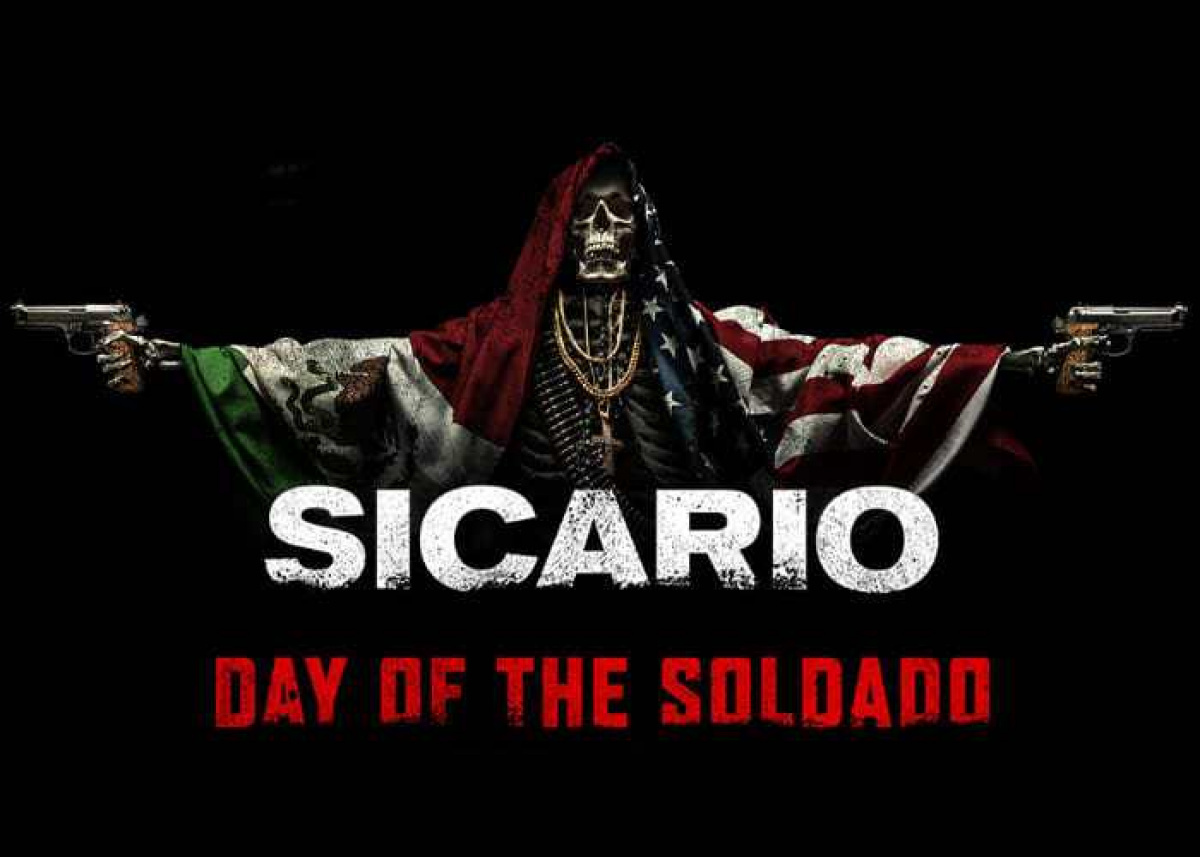By Joe Shelton
Sicario” (2015) was something very like a masterpiece, an ambitious tale of crime on the borderlands that sometimes felt like the progeny of a bloody-minded Western and an ethical inquiry disguised as a horror film, didn’t seem like it needed a sequel. Its various threads were all resolved — or left conspicuously unresolved to make a point about its world of violently amoral men — by the film’s queasy but inevitable conclusion. And the film’s protagonist, the DEA agent portrayed by Emily Blunt, has realized that she desperately needs to get away from this world of weak men and toxic violence.
She must have done just that because in “Sicario: Day of the Soldado” she’s nowhere to be found. Which means that there’s no-one to check the consciences of Benicio Del Toro’s Alejandro and Josh Brolin’s Matt Graver, who are now largely allowed to their own violent, amoral devices. This time around, Alejandro, fresh off his last revenge but evidently not having achieved satisfaction, is called to foment war between the cartels, a task he completes with vicious but sad-eyed relish but which is not without complications. Brolin and crew must fake the kidnapping of a cartel leader’s daughter, contend with federales loyal to the crime families, and defend their violent, amoral devices from their boss (Catherine Keener), whose rote disapproval of the proceedings serves less as a plot point than a plot necessity.
So yes, there’s plenty of, for lack of a better phrase, toxic masculinity — including the often unpleasant combination of bravado and violence. But where “Sicario 2” succeeds is where it hews close to its predecessor: the tone. The film is still gorgeously photographed, with Darius Wolski filling the shoes of the original Sicario’s Roger Deakins quite admirably. And the score by
Hildur Guðnadóttir (taking over for the late Johann Johannsson) is still pure dread, all ominous strings and strange, arrythmic drums over atmospheric soundscapes that evoke a feeling somewhere between grand guignol and profound foreboding.
And, ultimately, as the film nears its conclusion, it does get more interested in the ethical questions that occupied its predecessor. The film’s best sequences see the usually unflappable Alejandro having to perform the task of illegally entering the United States with a group of desperate asylum seekers. Not only is it a chastening moment for Del Toro’s hitman character, its a chastening moment for its American audience, who are reminded what some of those asylum seekers are escaping from, and what some of them are hoping to find in our country.
While it doesn’t achieve the same heights as the first “Sicario”, the sequel does suggest interesting opportunities for the series going forward. And I, for one, can be counted to be in the opening weekend audience of “Sicario 3” whenever it materializes.




This is very interesting, You are a very skilled blogger. I have joined your rss feed and look forward to seeking more of your wonderful post. Also, I have shared your web site in my social networks!